
We're big on green energy in the UK, right? Especially when it comes to those shiny solar panels.
There's been a ton of schemes and grants to help us onboard.
Let's chat about the funding we have access to.

Crowdfunding Platforms: Have become a popular alternative for funding solar panel installations, allowing communities to collectively invest in renewable energy.
Green Loans: Financial products with favorable terms to finance the purchase and installation of solar panels.
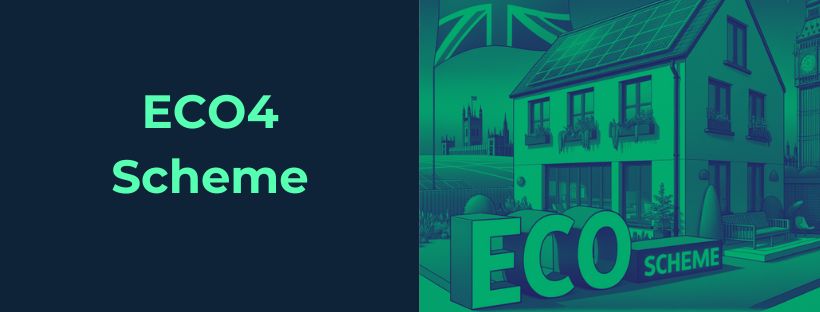
Ever heard of the ECO4 scheme? It's a nifty government scheme with two primary goals - curbing carbon emissions and giving fuel poverty a solid kick. They're focusing their efforts on the folks who need it the most, like low-income households, those struggling with fuel poverty, and vulnerable households.
The real cherry on top? Through ECO4, these households can get funding for all sorts of energy-saving goodies - proper insulation, swanky new boilers, and the star of our show, solar panel installations. Solar grants made simple, if you ask me!
So, the ECO4 scheme... Its main aim is to help out those folks who could really use a bit of energy-saving tech but are a bit skint. No worries about shouldering the full cost, though! The ECO4 steps in with some sprightly grants and helps lighten the load.
By offering a much-needed leg-up, ECO4 makes sure that being short of a bob or two doesn't put a full stop on getting your hands on sustainable technology.
To be eligible for the ECO4 scheme, applicants must meet certain criteria. These include:
In addition to these benefits, local authorities also have the power to refer residents in their area for an ECO grant, even if they don't meet the above criteria. This is called 'Flexible Eligibility' and helps ensure that assistance reaches those households that may otherwise miss out.
The ECO4 scheme brings several advantages both for individual beneficiaries and for society as a whole:
If you believe you meet the eligibility criteria for the ECO4 scheme and are interested in participating, here are the steps you can follow to apply:
With the ECO4 scheme, you can nab a piece of that sweet, renewable energy pie. The benefits? A cleaner planet and some extra dosh in your pocket too.
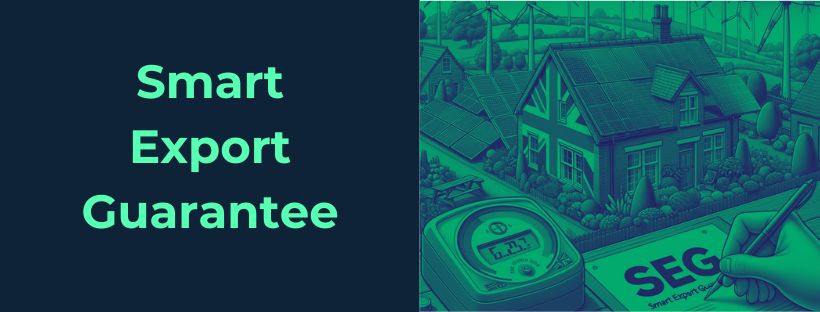
Right, so there's this thing called the Smart Export Guarantee (SEG), yeah? If you're a homeowner or a business with a few renewable energy gizmos (like solar panels) knocking about, this could be a good one for you. You can actually get paid for any extra energy you pop back into the grid.
The SEG works on a simple idea: if your solar panels produce more electricity than you can use, why not share it with others? Instead of wasting the surplus energy, you can sell it back to the national grid. Under this scheme, electricity suppliers are required to offer a fair price for each unit of electricity you export.
Here's how you can apply for the Smart Export Guarantee:
| Rank | Supplier | SEG Tariff Name | SEG Rate (per kWh) | Additional Information |
|---|---|---|---|---|
| 1 | Octopus Energy | Octopus Flux | 24p | Highest rate, available for Octopus customers with smart meters. |
| 2 | E.On Next | Next Export Exclusive | 16.5p | Exclusive rate for E.On Next customers. |
| 3 | Octopus Energy | Outgoing Fixed | 15p | Fixed rate for Octopus customers. |
| 4 | ScottishPower | SmartGen+ | 15p | For ScottishPower customers, requires a smart meter. |
| 5 | ScottishPower | SmartGen Tariff | 12p | Available for both customers and non-customers. |
| 6 | So Energy | So Export Flex | 5p | 30 Days Rolling |
| 7 | British Gas | Export & Earn Flex | 6.4p | Flexible rate that can change with the market. |
| 8 | EDF | Export Variable Value | 5.6p | Variable rate for EDF customers. |
| 9 | Pozitive Energy | - | 5.5p | - |
| 10 | Octopus Energy | Outgoing Go | 4.1p | Available for non-Octopus customers with smart meters. |
Note: The rates are correct as of 08/01/24 and will be updated monthly. They are subject to change and may vary based on the supplier's terms and conditions. It's important to check the latest rates directly with the supplier.
To be eligible for this program, your installation must meet certain criteria:
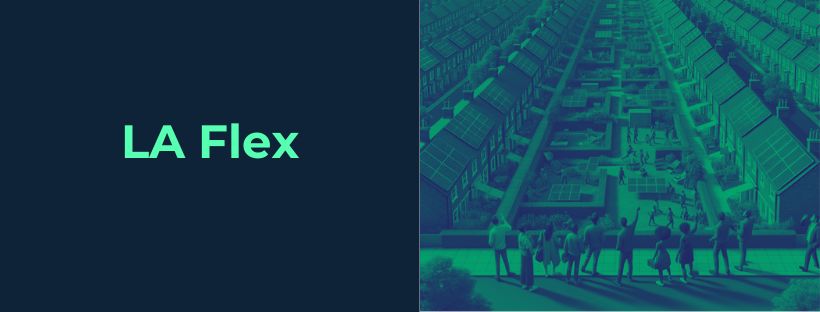
The Local Authority Flexible Eligibility (LA Flex) initiative. Designed to help those feeling the chill of energy poverty and boost energy efficiency in the process. Plus, it gives a boost to solar panel projects, helping to reduce those pesky energy bills. What's the catch, you might wonder? Well, there isn't one really. This program gives local authorities the power to point out and support households.
While the LA Flex program covers various interventions to lower energy costs, it also includes grants for solar panels. Here are some important details about the program:
The eligibility requirements for the LA Flex program are determined by each local authority. These requirements typically consider factors such as income levels, property types, and potential energy savings. Here are some common criteria used:
If you're interested in applying for solar panel funding through the LA Flex program, here are some important details to keep in mind:
Each local authority provides specific information about their LA Flex program through official channels or affiliated programs. If you're interested in learning more about the program and its availability in your area, it's recommended to contact your local council. They can provide you with tailored information based on your circumstances and any region-specific initiatives related to the LA Flex program.

The UK government - yes, the very same lot who usually love to tax the pants off of anything that moves - they've done something a bit surprising. They've gone and slashed the VAT rate on solar panels and other energy-saving tech.
Applying for the 0% VAT rate does not require a separate application process. Instead:

For homeowners situated in Scotland, the Home Energy Scotland grant and loan schemes serve as a significant source of funding for solar panel installations.
Launched by the Scottish government, these initiatives aim to support energy-saving measures.
One such initiative is the Home Energy Scotland Renewable Loan Scheme. Offering interest-free loans of up to £10,000, it provides financial backing for renewable technologies, including solar PV panels and solar water heating systems.
Repayable over a maximum period of 12 years, this scheme aims to make sustainable energy solutions more affordable for homeowners.
Another noteworthy scheme is the Home Energy Efficiency Programmes for Scotland (HEEPS). Funded by the Scottish government, HEEPS provides grants to homeowners and private sector landlords to improve energy efficiency in their properties. Solar PV panels fall under energy-efficient systems eligible for funding.
Applications for these schemes can be made through Home Energy Scotland's dedicated hotline or website. Prospective applicants should ensure they meet the eligibility criteria set out by each scheme before applying.
These initiatives reflect the Scottish government's commitment towards building a more sustainable future, making renewable energy solutions such as solar panels more accessible to homeowners across the country.
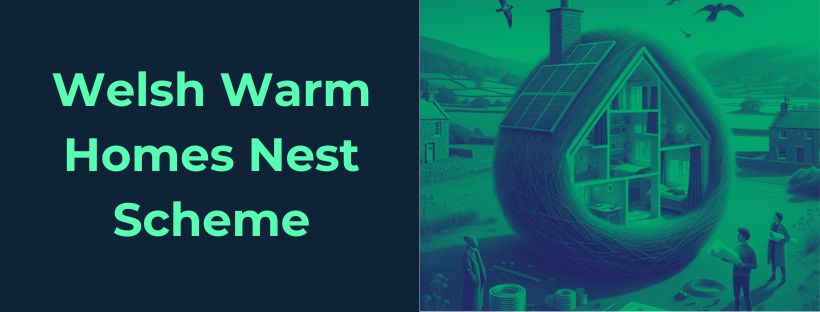
Designed to aid in the fight against fuel poverty, the Welsh Government Warm Homes Nest Scheme provides free energy-saving home improvements to eligible households across Wales.
Solar panel installations are among the energy-efficient upgrades offered through this scheme.
The Nest Scheme is not income-based, making it accessible to a wider audience than similar initiatives. Instead, its eligibility criteria focus on whether applicants:
The scheme's primary objective is reducing energy usage and costs. By installing solar panels, households can generate their own renewable electricity, thus lowering their reliance on grid energy and ultimately reducing their energy bills.
Many homeowners have benefited from the Nest Scheme since its launch in 2011. The initiative has been lauded for its effectiveness in helping residents achieve significant savings on energy costs.
To apply for the scheme, interested individuals need to contact the Nest team directly or fill out an online application form.
The Welsh Government Warm Homes Nest Scheme exemplifies how local authorities are taking steps to support renewable energy adoption, contributing to a greener UK while also aiding those at risk of fuel poverty.
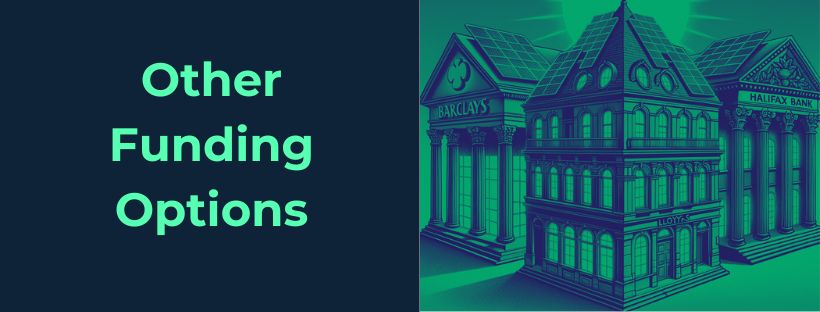
Banks in the UK are waking up and smelling the coffee (finally!). They're now rewarding us who fancy going green with our homes, like putting up solar panels.
Barclays supports eco-friendly home improvements with its Greener Home Reward scheme, specifically catering to UK residential mortgage customers looking to adopt solar technology. Eligible customers who install solar panel systems can receive a substantial cash incentive:
Lloyds Bank is also contributing to the green movement with its Eco Home Reward program:
Halifax offers a similar incentive through the Green Living Reward:
These initiatives not only promote sustainable practices but also provide homeowners with financial benefits that make transitioning to renewable energy sources like solar power more feasible.

The Home Upgrade Grant was another initiative designed to make solar energy more accessible to UK homeowners. It provided substantial grants, up to £10,000, aimed at improving the energy efficiency of households in certain local authorities.
To have been eligible for the Home Upgrade Grant:
The impact of this grant can be significant. A well-installed solar panel system could potentially cover the majority of a household's electricity needs, leading to drastically reduced energy bills and less reliance on grid electricity. This not only benefits individual homeowners but also contributes towards the UK's broader goal of increasing renewable energy consumption and reducing carbon emissions.
The Domestic Renewable Heat Incentive (RHI) was a UK Government financial support scheme designed to encourage the uptake of renewable heat technologies among householders, communities, and businesses through financial incentives. Launched in April 2014, this initiative targeted an increase in the generation of heat from renewable sources.
Despite its success in boosting the adoption of renewable heating systems, the Domestic RHI scheme closed to new applicants on 31 March 2022. The scheme's closure marked a transition in government strategy towards more holistic measures encompassing broader energy-saving solutions for households.
Participants who joined prior to the deadline continue to benefit from the scheme as they receive the financial support agreed upon for the full seven-year period. The legacy of Domestic RHI lives on as it set a precedent for future policies aimed at decarbonizing domestic heating and supporting greener alternatives for homeowners across the UK.
As solar technology advances and becomes more cost-effective, new schemes and incentives arise, reflecting ongoing commitments to sustainable energy solutions. These initiatives often aim to build upon the groundwork laid by previous programs such as the Domestic RHI.
The Free Solar Panel Scheme, also known as 'rent-a-roof', was an innovative program in the UK allowing homeowners to benefit from solar panels without the upfront costs. Under this scheme, companies would install solar panels on a property at no immediate cost to the homeowner. In return, these companies would retain ownership of the solar panels and benefit from the Feed-in Tariff (FiT).
Features of the Free Solar Panel Scheme included:
Despite its popularity, this scheme had some limitations:
This scheme is no longer available due to changes in government policy and the end of the FiT in April 2019. However, its impact on solar adoption in the UK was significant, contributing to wider acceptance and understanding of solar energy benefits among homeowners.
As homeowners continue to explore solar energy options, newer incentives and funding mechanisms have come into play. These include schemes like ECO4 that offer support tailored towards specific groups within society and emphasize sustainability and long-term energy savings.
The Social Housing Decarbonisation Fund (SHDF) was a significant initiative that aimed to facilitate the installation of solar panels in social housing at competitive rates. This funding mechanism contributed significantly to the UK's transition towards renewable energy, specifically within the social housing sector.
While this fund has now expired, it served as a model for similar future initiatives and reinforced the government's commitment to sustainable energy practices. It is important to note that while the SHDF is no longer active, there are other schemes currently available that also aim to promote sustainable energy use and offer financial support for adopting renewable technologies, such as the Energy Company Obligation (ECO4) and Smart Export Guarantee (SEG).
Remember: While specific grants may expire, there are always new opportunities emerging to support renewable energy adoption.
The legacy of the Social Housing Decarbonisation Fund continues as homeowners and landlords alike seek out ways to make properties more sustainable and energy-efficient. Whether through community projects or individual efforts, the drive towards greener living remains strong.
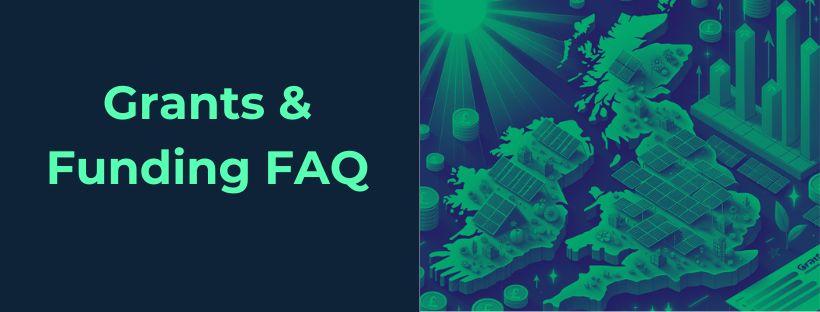
Yes, various grants for solar panels are available in the UK. Current schemes include the Energy Company Obligation (ECO4) and Smart Export Guarantee (SEG). Each of these initiatives has specific criteria for eligibility.
The Free Solar Panel Scheme ended in 2019. However, other funding options such as community energy projects and low-interest loans have been known to help offset the upfront cost of solar panel installation.
Yes, solar panel initiatives vary across the UK. For instance, the Home Upgrade Grant was only available to households in certain local authorities. Additionally, some schemes like ECO4 require referral from a local authority or energy provider.
Some past schemes have closed due to changes in government policy or completion of their designated timeframe. However, new initiatives often replace them, reflecting the government's ongoing commitment to renewable energy.
Yes, the UK government regularly introduces new grants and incentives to encourage the use of renewable energy. For example, the VAT reduction on energy-saving materials will be effective from April 2022 until 2027.
If you meet the eligibility criteria, grants can significantly reduce installation costs. It is advisable to research all available options before making a decision.